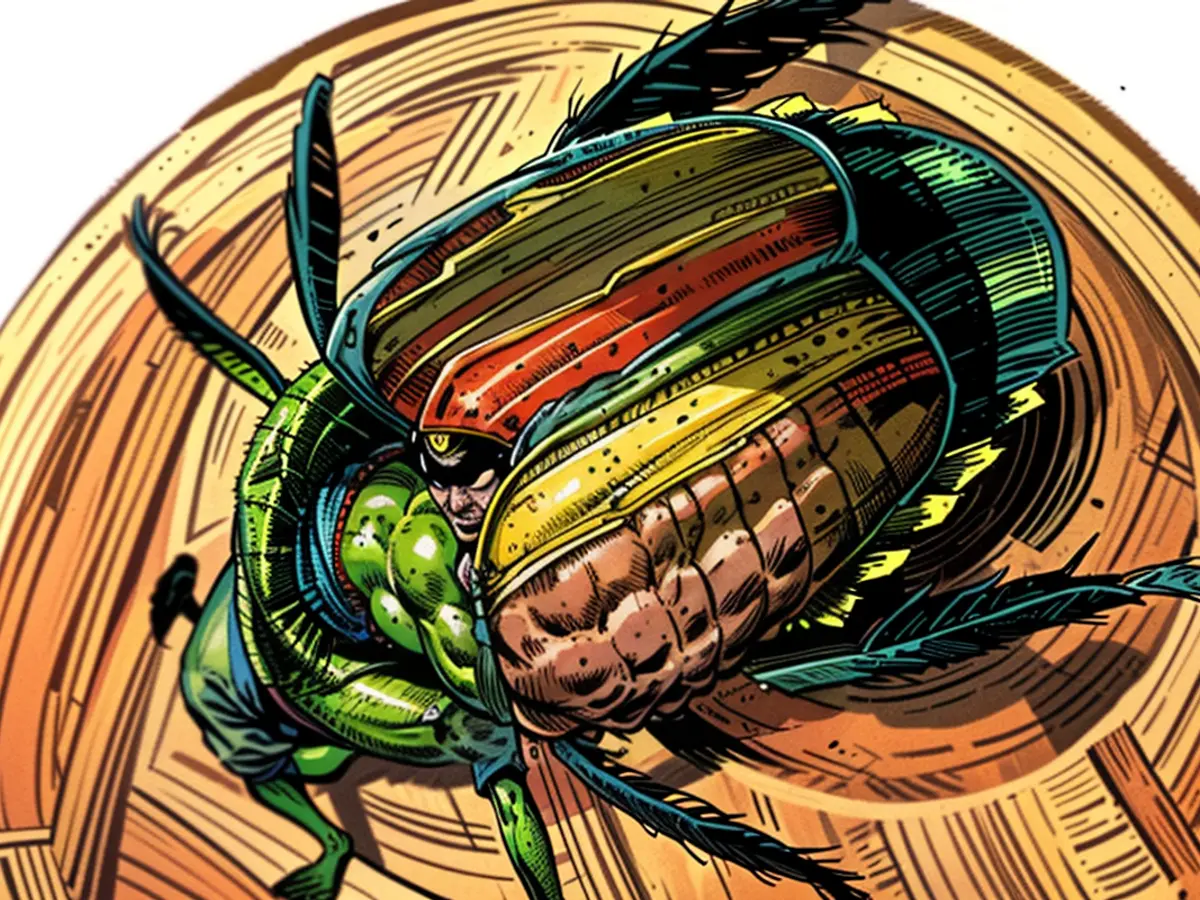Fight against beetles - Southwest will prevent the spread of Japanese beetles
Baden-Württemberg will prevent the spread of the voracious Japanese beetle. Plant material may only leave designated areas in the Landkreis Lörrach near the Swiss city Basel if it is guaranteed that no beetles are being transported. The Agriculture Ministry confirmed this in Stuttgart in response to an inquiry.
Following further discoveries of the beetle in Switzerland near the German border, the neighboring district of Lörrach had already announced that it would extend its protective measures. The discoveries have recently gotten so close to the border that the district is now for the first time in Germany setting up a quarantine zone, as reported by the Agricultural Technology Center Augustenberg in Karlsruhe.
The quarantine zone, according to the Lörrach district administration, covers areas with a radius of 1,000 meters around the locations where the beetles were found on the Swiss side. In addition, there is a buffer zone of at least five kilometers along the border - it extends beyond the quarantine zone. In the quarantine zone, particularly strict rules apply: Plant material should remain in place for the time being.
Expert: "Very dynamic situation"
In Germany itself, no beetles have been found this year, according to the Augustenberg Research Center. "It's a very dynamic situation," said LTZ plant health expert Frauke Rinke in response to an inquiry. If more beetles are found on the Swiss side of the border, the quarantine zone on the German side could be expanded.
In the past years, individual beetles have been recorded, Rinke said. However, these were likely to have come with goods from infested areas and not immigrated. In Basel, 77 beetles have been caught so far.
The Asian-origin Japanese beetle (Popillia japonica) is classified as a pest in the European Union, capable of causing significant damage. The insects attack orchards, vineyards, forests, lawns and gardens and feed on over 300 plant species. Natural enemies here do not exist.
In the fight against the beetle, citizens are also needed
To prevent settlement in Germany, people are asked to report suspicious beetle findings to the responsible plant protection service in their federal state. The Japanese beetle is only about one centimeter long, has a metallic-glossy green head and brown wings. Distinctive features are five white hair tufts on each abdominal segment and two white hair tufts at the end of the abdomen.
- The Japanese beetle, classified as a pest in the EU, originates from Asia and has caused significant damage in various plant species in Basel, Switzerland.
- Due to the discoveries of the beetle near the German border, Baden-Württemberg, specifically the Lörrach district, has set up a quarantine zone to prevent its spread into Germany.
- The quarantine zone in Lörrach encompasses a radius of 1,000 meters around the Swiss locations where the beetles were found and a buffer zone of at least 5 kilometers along the border.
- In response to an inquiry, the BMELV (Federal Ministry of Food and Agriculture) in Stuttgart confirmed that plant material can only leave designated areas in Lörrach if it's guaranteed that no beetles are being transported.
- According to the Augustenberg Research Center, no Japanese beetles have been found in Germany this year, but it's a "very dynamic situation," as suspected beetles could cause the quarantine zone to expand.
- In the fight against the beetle, citizens are urged to report any suspicious findings to the responsible plant protection service in their respective German federal states to prevent its spread from neighboring countries like Switzerland.
- To ensure effective control of the Japanese beetle in Germany, cooperation between agricultural authorities, researchers, and citizens is crucial in identifying and addressing potential threats to the country's agriculture and landscape.








